Nissan X-Trail vs Renault Clio – Differences & prices compared
Compare performance, boot space, consumption and price in one view.
Find out now: which car is the better choice for you – Nissan X-Trail or Renault Clio?
The Nissan X-Trail (SUV) comes with a Petrol MHEV or Full Hybrid engine and Automatic transmission. In comparison, the Renault Clio (Hatchback) features a Full Hybrid or Petrol engine with Automatic or Manuel transmission.
When it comes to boot capacity, the Nissan X-Trail offers 585 L, while the Renault Clio provides 391 L – depending on how much space you need. If you’re looking for more power, decide whether the 213 HP of the Nissan X-Trail or the 143 HP of the Renault Clio suits your needs better.
In terms of consumption, the values are 5.70 L per 100 km for the Nissan X-Trail, and 4.30 L for the Renault Clio.
Price-wise, the Nissan X-Trail starts at 34000 £, while the Renault Clio is available from 16600 £. Compare all the details and find out which model fits your lifestyle best!
Nissan X-Trail
The Nissan X-Trail stands out with its spacious interior and practical design, making it an ideal choice for families and adventure enthusiasts alike. Its sleek exterior styling is complemented by modern technology features that enhance both driving pleasure and safety. This versatile SUV offers a comfortable ride, whether navigating city streets or exploring off-road paths, ensuring you travel in style and comfort.
details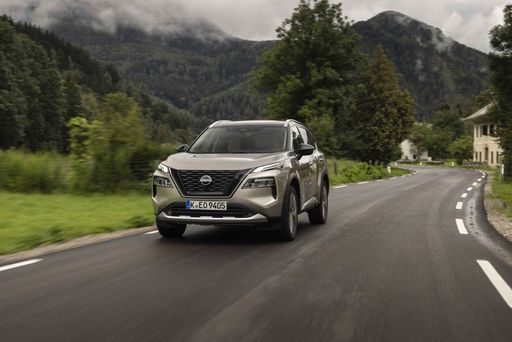 @ germany.nissannews.com
@ germany.nissannews.com
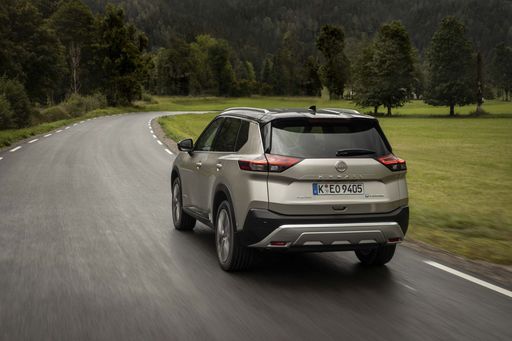 @ germany.nissannews.com
@ germany.nissannews.com
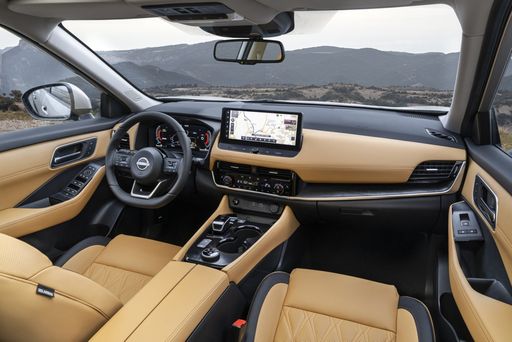 @ germany.nissannews.com
@ germany.nissannews.com
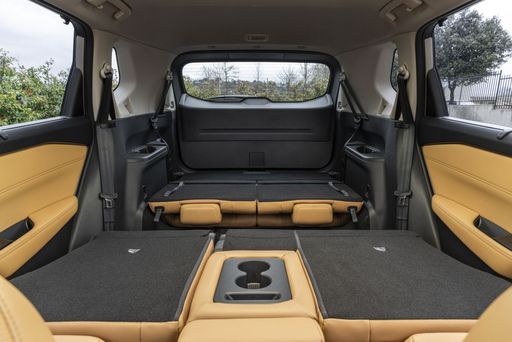 @ germany.nissannews.com
@ germany.nissannews.com
Renault Clio
The Renault Clio continues to impress with its sleek design and agile handling, making it a standout choice in the compact car segment. Inside, it offers a surprisingly spacious and comfortable cabin, crafted with high-quality materials that enhance the driving experience. Its fuel efficiency and reliable performance make it an attractive option for both city commuting and longer journeys.
details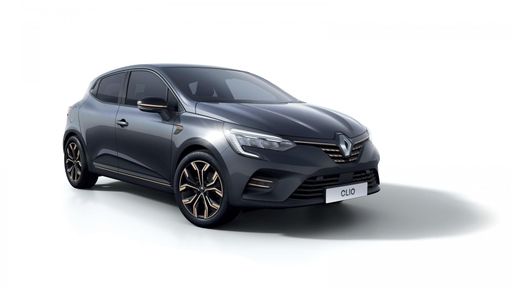 @ renault-presse.de
@ renault-presse.de
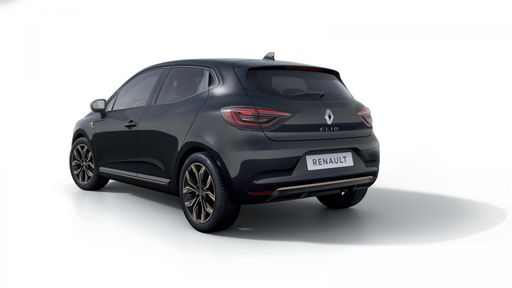 @ renault-presse.de
@ renault-presse.de
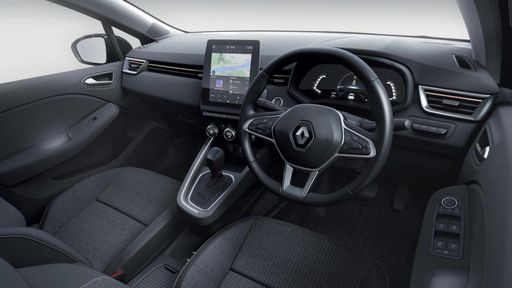 @ renault-presse.de
@ renault-presse.de

|

|
|
|
|
Costs and Consumption |
|
|---|---|
|
Price
34000 - 50400 £
|
Price
16600 - 23000 £
|
|
Consumption L/100km
5.7 - 6.9 L
|
Consumption L/100km
4.3 - 5.3 L
|
|
Consumption kWh/100km
-
|
Consumption kWh/100km
-
|
|
Electric Range
-
|
Electric Range
-
|
|
Battery Capacity
-
|
Battery Capacity
0.60 kWh
|
|
co2
131 - 161 g/km
|
co2
97 - 121 g/km
|
|
Fuel tank capacity
55 L
|
Fuel tank capacity
39 - 42 L
|
Dimensions and Body |
|
|---|---|
|
Body Type
SUV
|
Body Type
Hatchback
|
|
Seats
5 - 7
|
Seats
5
|
|
Doors
5
|
Doors
5
|
|
Curb weight
1668 - 1961 kg
|
Curb weight
1124 - 1331 kg
|
|
Trunk capacity
177 - 585 L
|
Trunk capacity
301 - 391 L
|
|
Length
4680 mm
|
Length
4053 mm
|
|
Width
1840 mm
|
Width
1798 mm
|
|
Height
1720 mm
|
Height
1440 mm
|
|
Payload
432 - 574 kg
|
Payload
398 - 406 kg
|
Engine and Performance |
|
|---|---|
|
Engine Type
Petrol MHEV, Full Hybrid
|
Engine Type
Full Hybrid, Petrol
|
|
Transmission
Automatic
|
Transmission
Automatic, Manuel
|
|
Transmission Detail
-
|
Transmission Detail
Automatic Gearbox, Manual Gearbox
|
|
Drive Type
Front-Wheel Drive, All-Wheel Drive
|
Drive Type
Front-Wheel Drive
|
|
Power HP
163 - 213 HP
|
Power HP
67 - 143 HP
|
|
Acceleration 0-100km/h
7 - 9.6 s
|
Acceleration 0-100km/h
9.3 - 17.1 s
|
|
Max Speed
170 - 200 km/h
|
Max Speed
160 - 174 km/h
|
|
Torque
300 - 525 Nm
|
Torque
95 - 205 Nm
|
|
Number of Cylinders
3
|
Number of Cylinders
3 - 4
|
|
Power kW
120 - 157 kW
|
Power kW
49 - 105 kW
|
|
Engine capacity
1497 cm3
|
Engine capacity
999 - 1598 cm3
|
General |
|
|---|---|
|
Model Year
2024
|
Model Year
2023 - 2025
|
|
CO2 Efficiency Class
F, D, E
|
CO2 Efficiency Class
C, D
|
|
Brand
Nissan
|
Brand
Renault
|
Nissan X-Trail
A New Era for the Nissan X-Trail
The 2024 Nissan X-Trail ushers in a new era of innovation and performance, catering to modern drivers who seek versatility, efficiency, and cutting-edge technology. With its striking design and advanced hybrid technologies, the X-Trail is poised to capture the interest of SUV enthusiasts around the globe.
Innovative Powertrains
Nissan has equipped the X-Trail with an array of innovative powertrains to meet diverse driving needs. Options include both mild-hybrid and full-hybrid technologies, with a 1.5 VC-T engine at the heart of its power delivery. Offering up to 213 PS, the X-Trail’s hybrid systems promise a blend of performance and efficiency, with fuel consumption ranging from 5.7 to 6.9 L/100km.
Seamless All-Wheel Drive
One of the standout features of the X-Trail is its seamless all-wheel-drive system, dubbed e-4ORCE. This advanced system ensures optimal traction and stability, providing confidence across various terrains and weather conditions. Available in selected trims, it complements the robust, SUV design perfectly.
Designed for Comfort and Functionality
The X-Trail offers a spacious interior, designed to seat up to seven passengers comfortably. With multiple seating configurations and a boot capacity ranging from 177 to 585 litres, it is ideal for family outings and adventurous road trips. The interior is designed with a focus on ergonomic comfort and intuitive technology, featuring advanced infotainment systems that keep drivers connected on the move.
Technological Advancements
The 2024 X-Trail boasts an impressive suite of technological advancements, including Nissan’s ProPILOT system. This driver assistance technology makes highway driving safer and more comfortable by helping control acceleration, braking, and steering within a single lane. Combined with the latest safety features, such as automatic emergency braking and blind-spot monitoring, the X-Trail sets a new standard in vehicle safety.
Efficiency Meets Performance
The 2024 Nissan X-Trail is engineered to provide a balance of efficiency and performance. With a range of CO2 efficiency classes from E to F, it positions itself as both an eco-friendly and powerful option within the SUV segment. Moreover, the smooth CVT transmission ensures a dynamic drive that adapaits to the driver's needs, whether navigating city streets or exploring off-road trails.
Conclusion
In conclusion, the Nissan X-Trail offers a compelling package for SUV buyers, blending cutting-edge hybrid technology, advanced safety features, and versatile design. It stands as a testament to Nissan’s commitment to innovation and continues to push the boundaries of what an SUV can offer in the modern age.
Renault Clio
Introduction to the Renault Clio
The Renault Clio, a popular choice among compact cars, has continually advanced its design and technology to maintain a strong position in the automotive market. With enhancements in engineering, efficiency, and aesthetic appeal, the Clio remains a top contender in the hatchback category.
Advanced Hybrid Technology
The Renault Clio's hybrid technology is one of its standout features. The E-Tech Hybrid system optimises both performance and efficiency, offering a seamless transition between electric and fuel-powered driving. This setup results in an impressive fuel consumption rate of 4.3 L/100km, making it an attractive option for eco-conscious drivers.
Efficient Engine Options
Renault offers a variety of engine choices for the Clio, accommodating different driving styles and preferences. From the economical SCe 65 manual variant to the powerful TCe 100 LPG gas version, each option is engineered to balance performance with fuel efficiency. With outputs ranging from 67 to 143 PS, drivers can enjoy a tailored driving experience.
Design and Comfort
The Renault Clio stands out with its sleek and modern design, characterized by its hatchback body style. The interior boasts an ergonomic layout with seating for five, ensuring passenger comfort and convenience. With a boot capacity of 301 to 391 litres, the Clio also offers practical storage solutions for everyday use.
Safety and Innovation
Safety is a key priority for Renault, and the Clio reflects this commitment with its suite of innovative safety features. Advanced driver-assistance systems are integrated throughout, enhancing both safety and usability. The Clio encompasses features like lane departure warning, automatic emergency braking, and adaptive cruise control.
Cost Efficiency and Environmental Impact
The Renault Clio not only offers affordability with pricing ranging from €18,450 to €26,800, but also promises low running costs. With CO2 emissions between 97 and 130 g/km, the Clio fits well within the C and D efficiency classes. This makes it a cost-effective and environmentally friendly choice for modern drivers.
Conclusion
Renault Clio remains a dynamic, dependable and economical option in the compact car segment. With its innovative technologies, diverse engine options, and commitment to safety and design, the Clio continues to impress and adapt to the evolving demands of the automotive world.
Which drive types are available for the Nissan X-Trail?
Available as Front-Wheel Drive or All-Wheel Drive.
The prices and data displayed are estimates based on German list prices and may vary by country. This information is not legally binding.
